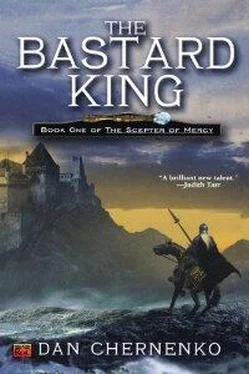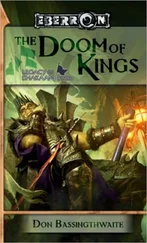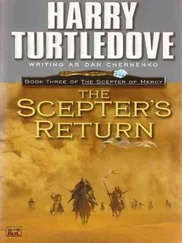The Bastard King
by Dan Chernenko
To Lisa, Joshua, and Christine
Once upon a time, a long time ago, the Kingdom of Avornis had two kings at the same time. King Lanius was the son of a king, the grandson of a king, the great-grandson of a king, and so on for a dozen generations. King Grus was the son of Crex the Unbearable. Between them, they brought the Scepter of Mercy back to the city of Avornis in triumph, and did many other deeds of which the bards will sing for ages yet to come. One of them, pretty plainly, was a great king. The other, just as plainly, was not. The only trouble is, it’s not always obvious which was which…
This tale begins a little less than nine months before King Lanius was born. That was when Certhia, King Mergus’ concubine, went to Mergus and told him she thought she was with child.
Mergus, by then, had been King of Avornis for almost thirty years. He was a big, rawboned man with a long white beard and a scar on his cheek above it that proved he’d been a warrior in his younger days. His eyes were a dusty, faded blue—a hopeless blue, you might say, for he had no sons.
Waiting to succeed him was his younger brother, Prince Scolopax. Mergus hated Scolopax. The hatred was mutual. Scolopax waited… impatiently.
Hearing Certhia’s news, Mergus put his big, knobby-knuckled hands on the concubine’s soft shoulders and rumbled, “Are you sure?” The rumble ended in a harsh, wheezing cough—several harsh, wheezing coughs, in fact. Mergus had been coughing more and more the past couple of years. Prince Scolopax might not have to be impatient too much longer.
On the other hand, after this, he might.
Certhia looked up into the king’s lean, haggard face. Her eyes were blue, too, the deep, striking sapphire blue for which so many women gave so many wizards so much gold. For her, the color was natural. Mergus thought so, anyway.
“Not yet, Your Majesty,” she answered. “In another month, though, I’ll know for certain.”
“If it’s a boy—” Mergus paused to cough again. He had trouble stopping. When he finally did, a tiny fleck of pink-stained spittle rested on his lower lip. He flicked out his tongue and it was gone. He gathered strength. “If it’s a boy, Certhia, I’ll wed you.”
Those sapphire blue eyes widened. “Oh, Your Majesty,” Certhia whispered.
“I mean it,” Mergus declared. “If it’s a boy, he’ll be my heir. To be my heir, he has to be legitimate. For him to be legitimate, you have to be my wife.”
“But—” Certhia said, and then said no more.
But indeed. Commoners in Avornis were allowed three wives, nobles four, and the king six. Even Olor, king of the gods, had no more than six wives. Mergus had long since gone through his allotted half dozen seeking a son. He’d lost one wife in childbirth, one to a fever. One he’d sent away for barrenness. The remaining three had given him five daughters, two of whom still lived.
“I don’t care,” he said now. “I’ll find a way.”
“The priesthood won’t like it,” Certhia predicted.
Mergus scowled. “The priesthood never likes anything,” he said, which wasn’t far wrong, either. “But if I have a son, he will sit on the Diamond Throne after me. If I can’t get a priest to listen to me any other way, I can buy one, or more than one. I can—and I will.”
Certhia cast down those blue, blue eyes. “Yes, Your Majesty,” she murmured. More than anything else, she wanted Mergus to marry her. To be Queen of Avornis… But she was shrewd enough to know that letting him see that would hurt her chances.
Mergus reached out and caressed her breasts through the thin linen of her smock. Instead of stepping forward into his arms, she flinched away. “They’re tender?” he demanded.
“Yes,” she said. “I’m sorry, Your Majesty.”
“Don’t be,” Mergus told her. “You’re pregnant, all right. If it’s a boy…” He had the face of a man who’d forgotten how to dream but suddenly remembers.
* * *
Grus commanded a river galley on the Stura, southernmost of the Nine Rivers cutting across the plain that made up the heart—and the breadbasket—of the Kingdom of Avornis. He was almost thirty—he’d been born in the year Mergus took the Diamond Throne. Slightly above middle height, he was lean and dark-eyed, with a thick black beard he trimmed very close. He’d taken a sword cut on one side of his chin a couple of years earlier, and the hair in the scar, when it began to grow again, grew in silver.
Like the rest of the Nine, the Stura flowed east, out from the foothills of the Bantian Mountains toward the Sea of Azania. The Tigerfish fought her way upstream on oar power. An officer with a kettledrum beat out the stroke for the rowers (free men, every one of them, not dead-souled slaves or chained captives who pulled oars for the Banished One).
Grus swigged from a wineskin and wiped his mouth on the sleeve of his linen tunic. He kept a wary eye on the southern bank of the Stura. The river belonged to Avornis; the land beyond it to Prince Ulash—and thus to the Banished One. Ulash’s grandfather had once ruled on this side of the Stura, as well; the Prince made no secret of wanting to do the same. But Grus saw only a few thralls laboring in the fields—no signs of trouble.
He turned to his first lieutenant, a leathery veteran named Nicator, and remarked, “The latest truce seems to be holding.”
Nicator’s teeth were startlingly white against his sun-cured hide when he grinned. “Oh, yes—for now. And it’ll keep right on holding for as long as Ulash wants it to, or until the Banished One tells him different. After that? Ha!” He shook his head.
“I know.” Grus went on watching the thralls. They went on working without even looking up at the Tigerfish. In a very real sense, the river galley wasn’t there for them. Grus shivered, though the sun blazed down from a cloudless sky. The thralls’ ancestors had been Avornans. They were… something else, something less. He shivered again, and took another pull at the wine. “Poor buggers.”
“Who? The thralls?” Nicator asked. At Grus’ nod, his lieutenant spat into the Stura. “They don’t know the difference—or care, either.”
“I know,” Grus said again. “That makes it worse, not better.”
Nicator thought it over. “Well, maybe,” he said.
As Grus passed the wineskin to Nicator, the ship’s wizard bustled up to him. “Excuse me, Captain—” he began.
“What is it, Turnix?” Grus broke in.
“Seeing shadows that aren’t there again, Turnix?” Nicator added scornfully.
The tubby little wizard turned red. “I do my best to keep this vessel safe,” he said with dignity.
His “best” had sent sailors scrambling and marines grabbing for their weapons three times in the past two days. He spied danger whether it was there or not. “What is it—what do you think it is—this time?” Grus asked with such patience as he could muster.
“May it please you, sir, it’s danger—great danger,” Turnix quavered.
Grus laughed in his face. “Oh, yes, fool, danger pleases me. But what pleases me about it is that it’ll be no more dangerous than these last three times. For that, I thank Olor and all the other gods.”
“All but one,” Turnix said, and Grus nodded. No Avornan would thank the Banished One. He was less than a god these days for his banishment, but more dangerous to mere men than all the heavenly hierarchy put together. For, being banished from the heavens, he manifested himself on the suffering earth and meddled directly in the affairs of men.
Читать дальше












